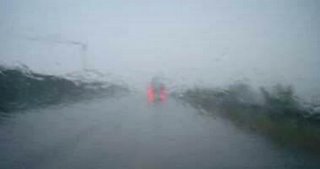
It's Monday morning. It was raining when I awoke, and the sky over the inlet was low and gray. Rachel made eggs with black beans and onions, and after breakfast we knit awhile and listened to This American Life. My heart is heavy.
We're in a café in Bath now, with free wireless internet, spacious couches, and a hit-or-miss soundtrack (most Christmas music and the currently-playing Phil Collins hit included in miss). Our work here over the weekend filled more than half of the "frequent customer card," leaving us only four cups away from a free drink. We're getting a lot of work done. Both the work accomplished and the prospect of a free coffee cheer me. As does my new little digital point-and-shoot.
But my heart still hangs.
I want life to make sense, you know, the way plots make sense. The way elements in a novel work together, details accumulating meaning. I'm not saying I want life to be simple or obvious, no, but ultimately I want some reason, some order, at least a variation on a theme. I want to learn my lessons and move forward with a modicum of purpose. I suspect it's old-fashioned of me to want this.
The catch is, though, that I tend to skim through the real difficult part of books or movies. The part where things get sticky and the hero or heroine is revealed as the failure he or she is. I leave the room or close my eyes. I hate the scenes leading up to confrontation, when the potential for real disaster hangs in the air. I want things to skip ahead to when things are moving smoothly again, when all parties are privy to the important information, kung-fu duels confined at least to those between good vs. evil.
But in my own life it seems precisely those confusing scenes which are dragged out for years. I'm waiting to be privy to all the revealings facts, for all the characters to be introduced, for the central conflict to present itself in a way I can confront. Meanwhile I hem and haw.
And rainy Monday mornings present themselves as if to remind me of the fact. But I try to do what the best characters in novels do: wake up, make coffee, complete their work, and fill up their frequent customer cards.





